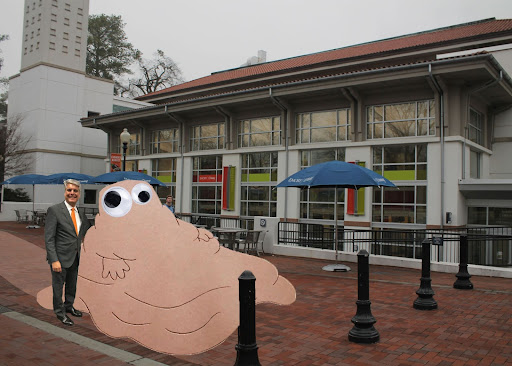Despite the comforting fantasy of finally ditching your hometown newspaper for a collegiate publication with thoughtful pieces from unique students and quirky professors, the modern college journalism experience boils down to one unromantic transaction — the switch from provincial local news to four years of bland, clickbait-ridden student “news.”

It seems counter intuitive to be critical of The Emory Wheel, since it has been arguably less awful than usual. Yet it is disheartening that the only time Emory students receive the quality coverage of campus life we were promised on admissions pamphlets is when it is SGA election season and the Wheel has scandals to cover.
To their credit, The Emory Wheel is seldom overtly dishonest, and emphasizes that its writers should never lie. But the subtle practices and omissions the Wheel utilizes are nonetheless deceptive. For example, the Wheel claims that their mission is to “to inform, educate and delight the student body of Emory University,” despite being about as educational and as exciting as watching paint dry while listening to an audiobook of the dictionary. Writers learn that they can choose to write on any topic they wish, as long as their piece is inflammatory, tepidly indulgent, or blatantly sycophantic toward other campus events and persons.
Wheel promotional materials are peppered with buzzwords and phrases, as if the Wheel representing the ideal fusion of The New Yorker and The Atlantic. However, these slogans hardly represent the true reality of the Wheel, which is that 75% of published material are Op Eds or opinions masquerading as news.
Other attempts to coat the Wheel with the varnish of an Pulitzer-winning trailblazer are more institutional. Despite predominantly existing as an outlet for discontented Ivy League rejects, the Wheel uses its name-recognition to recruit eager young freshmen. Students, especially those interested in bulking up their resume, arrive on campus with the preconception that the Wheel is a reputable newspaper. In reality, the Sports section is the most respectable and substantive portion of the paper.
We know why The Emory Wheel employs these strategies and to a certain extent, we cannot fault the writers for doing their jobs too well. The Wheel’s website presents a sparkling, iridescent exterior to bulk up application numbers and deflate admissions rates, and persuades students to give up valuable jerking-off time for four years of marginally more intellectual masturbation. After all, this relentless commitment to producing copious amounts of lackluster content is easier than maintaining a standard of journalistic integrity.
Yet as much as we bemoaned The Emory Wheel in years past, we must remember that their writers and Editors are real students with distinct academic and personal objectives, and oftentimes intellectual limitations. It is not the fault of Wheel writers that public scandals are the only time anything ‘news-worthy’ occurs at Emory. However, given this fact, the level of pretense within any given issue of the Wheel is laughable. Funneling resources into a proverbial arms race against publications of similar caliber and masquerading as something it is not builds an ill-informed and resentful student body, undermining the entire idea of “journalism” that The Emory Wheel supposedly values and continually espouses.
Whether you despise the Wheel or merely feel a benign loathing toward it, don’t be duped. Just like every other newspaper out there, The Emory Wheel uses all the glitz, glam and artifice it can muster to depict itself as something it cannot and will never live up to (sic).
The above editorial represents the majority opinion of the one hundred monkeys with typewriters that comprise The Spoke’s Editorial Board and definitely has no relation to an article published by The Emory Wheel.






Be First to Comment